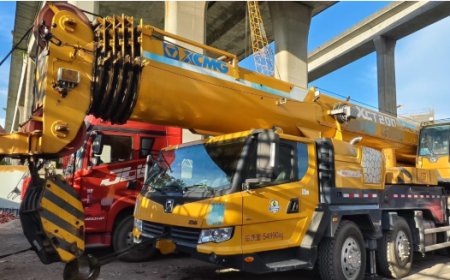The Complete Process of Working With a Professional Fence Company
This detailed guide explains the entire fence installation process, so you’ll know what to expect when you partner with a professional.

Installing a fence isnt just about marking property lines its about protecting your space, adding privacy, and enhancing curb appeal. The process may seem simple, but there are multiple important steps between your initial idea and the finished fence. Working with a reliable fence company ensures your project runs smoothly, legally, and meets your expectations.
Why Hire a Professional Fence Company?
While some property owners attempt DIY fence projects, a seasoned fence company brings:
-
Professional-grade tools and materials
-
Knowledge of local building codes and regulations
-
Accurate measurements and property line evaluations
-
Experience handling permits and inspections
-
Durable, polished, long-lasting results
Partnering with experts saves you time, stress, and potential legal or safety issues.
The Fence Installation Process: Step by Step
Initial Consultation and Site Assessment
Everything begins with an in-person or virtual consultation. A reputable fence company will:
-
Discuss your fencing goals (privacy, security, aesthetics, pets)
-
Review different materials and style options
-
Evaluate your propertys layout, slopes, and soil conditions
-
Identify existing fences, trees, or underground utilities
-
Confirm property boundaries
Theyll also check for local restrictions or HOA rules that might affect your design.
Fence Design and Material Selection
Based on your needs and preferences, the company will help you choose:
-
The fence height and length
-
Material type (wood, vinyl, chain-link, aluminum, etc.)
-
Gate styles and placement
-
Decorative features like post caps or lattice tops
A good fence company explains the pros and cons of each material in terms of:
-
Durability
-
Maintenance needs
-
Cost
-
Appearance
Permits and Approvals
Before digging post holes, your fence company ensures:
-
Local building permits are secured
-
HOA approvals (if applicable) are obtained
-
Utility companies are notified to mark underground lines
Skipping this step can lead to legal trouble or costly repairs if utilities are damaged.
Written Estimate and Contract Agreement
Youll receive a detailed written estimate covering:
-
Materials
-
Labor
-
Permits and fees
-
Project timeline
-
Payment schedule
-
Warranties
Reputable companies clearly outline their terms and expectations before beginning work.
Pre-Installation Preparation
The crew will:
-
Mark fence lines and post positions
-
Clear vegetation and obstacles
-
Deliver tools, equipment, and fencing materials
This ensures the project starts efficiently and without delays.
Fence Installation
Post Setting
The most critical part of fence stability. Posts are:
-
Dug to proper depth (typically 1/3 of post height)
-
Anchored with concrete footings
-
Checked for plumb and alignment
Panel or Rail Installation
Once posts are secure:
-
Fence panels, rails, or mesh are attached
-
Gates and hardware are installed
-
Panels are leveled and secured
A good fence company uses precision tools for a clean, consistent finish.
Gate and Access Features
Gates receive extra attention, as theyre high-use points. The company ensures:
-
Proper alignment
-
Durable hinges and latches
-
Smooth opening and closing
Clean-Up and Final Inspection
After installation:
-
Excess soil, concrete, and debris are removed
-
The fence line is cleared and tidied
-
The structure is inspected for stability and accuracy
-
Gates and hardware are tested
Your fence company should provide care instructions for your specific material type.
Types of Fences Installed by Professional Companies
Privacy Fences
Ideal for backyards, patios, and pool areas, built from wood, vinyl, or composite materials.
Security Fences
Used for commercial properties or high-security areas, typically chain-link, steel, or aluminum.
Decorative Fences
Enhance front yards or gardens with wrought iron, picket, or ornamental aluminum designs.
Pool Fences
Required by law in many areas for child safety, featuring self-latching gates and climb-resistant materials.
Pet Enclosures
Secure areas for dogs or livestock with custom fence heights and reinforced panels.
Benefits of Working With a Fence Company
-
Compliance with local laws and HOA rules
-
Access to higher-grade, longer-lasting materials
-
Warrantied labor and products
-
Faster project completion
-
Professional appearance and finish
-
Less risk of property disputes
FAQs
How long does it take to install a fence?
Most residential projects take 13 days. Larger or more complex jobs may require a week.
Will a fence company handle permits?
Yes a professional fence company typically includes permit applications and approvals in their service.
Do I need to be home during installation?
Not necessarily. As long as the crew has property access and a clear plan, you dont need to be present.
How much does professional fence installation cost?
Costs depend on fence material, size, site conditions, and customization. Most companies offer free estimates.
Does a new fence increase home value?
Yes an attractive, well-installed fence boosts curb appeal and makes homes more appealing to buyers.
Conclusion
A fence adds value, privacy, and safety to your property but only if installed properly. Working with a reliable fence company ensures a smooth, professional experience from consultation to final cleanup. With expert advice, high-quality materials, and precise craftsmanship, your new fence will look beautiful and perform well for years to come.
If youre ready to enhance your property, reach out to a trusted fence company to get started with your estimate and design consultation today.










































